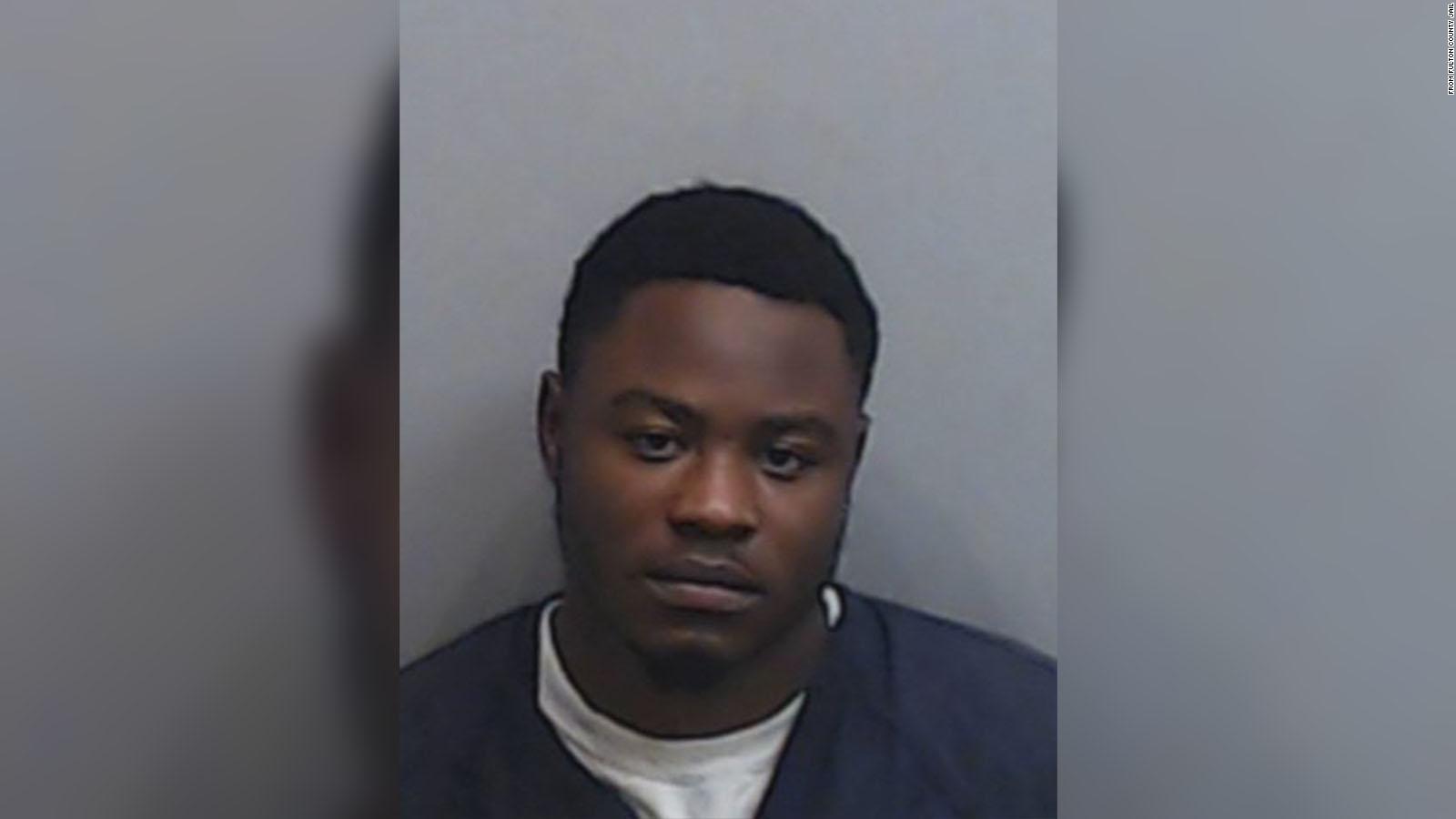Earlier that evening, a group of intoxicated men had been ejected from the bar, according to local reports. When one of the men reportedly returned with a gun and opened fire, Roberson managed to detain the shooter by putting his knee on the assailant's back, one witness told WGN. Roberson, who aspired to be a Chicago police officer, was wearing a hat that said "security," according to an attorney for the Roberson family.
The incident appeared to follow the NRA playbook. Roberson was a "good guy with a gun" taking on a "bad guy with a gun." As The American Conservative noted, it sounded "like a Second Amendment success story." But then the police shot and killed the good guy.
On Thanksgiving, just 11 days later, shots broke out during a fight between two young men at the Riverchase Galleria Mall in Hoover, Alabama, according to police. The suspect reportedly drew a weapon and shot an 18-year-old twice, while a 12-year-old girl was struck by a stray bullet.
Two uniformed Hoover police officers working security at the mall approached Emantic "EJ" Fitzgerald Bradford Jr., a 21-year-old black man, who was initially described by the police as "brandishing a pistol." One of the officers shot and killed him.
The Hoover Police Department initially declared Bradford the mall shooter, but the department soon retracted this statement, revealing that he was not, in fact, responsible. While the police narrative continued to shift in the days that followed, the actual gunman remained at large until suspect Erron Martez Dequan Brown was arrested a week later.
Many will conclude that these tragedies prove two seemingly obvious things.
One: While the NRA asserts that a "good guy with a gun" can stop a "bad guy with a gun," these incidents reveal that, in an active shooter situation, police are all too likely to identify any armed civilian as the shooter.
Two: African-Americans are more likely than white people to be killed by the police. According to an analysis in The Washington Post, 51% of those killed by police in 2014 and 2015 were white, while 28.1% were black. But white people made up 62% of entire country's population at the time, while black people accounted for 17.9%.
Active shooter situations are inherently urgent and confusing. While officers are trained to make split-second life-or-death decisions about the use of lethal force, the natural impulse is nevertheless to treat any armed person as a threat. And that impulse is difficult to overcome.
While it may be unclear whether racial bias played a role in the deaths of the two men in Illinois and Alabama, there are just two certainties. Roberson, the father of a nine-month-old baby with another on the way, and Bradford, a caregiver to his cancer-stricken father, are tragically dead.
Police officers routinely operate in situations of uncertainty. They are both sworn and trained to protect lives and civil rights. Often, these two imperatives conflict. They are also trained to think before they shoot and to employ deadly force as a last resort. But in many cases, there is no time to think, and often, the "last resort" is the only option that can save lives. No one ever said policing was easy. "Serving and protecting" in situations of uncertainty is, in fact, heartbreakingly difficult.
As a former president of the National Organization of Black Law Enforcement Executives (NOBLE), I joined the current National President Vera Bumpers and Executive Director Dwayne Crawford in a meeting with Acting Attorney General Matthew Whitaker on November 28. Our purpose was to share with him and the Department of Justice our deep concerns over the halted progress in police reform and accountability, especially after former Attorney General Jeff Sessions issued a memo November 7 drastically reducing the DOJ's role in working to resolve disputes between communities and their police departments. Acting AG Whitaker listened to us, and he agreed to continue the discussion in January to revisit the need for DOJ involvement in police reform and accountability.
In view of the open-minded spirit of our meeting with Whitaker, I am heartened and hopeful that the DOJ will act to restore the federal government's leadership role in helping police and communities to create a greater degree of certainty -- of truth, justice, and legitimacy -- especially in managing difficult policing issues such as the officer-involved shootings in Illinois and Alabama. These tragedies cry out for thorough and objective investigation leading to sound guidance from lessons learned.




No comments:
Post a Comment